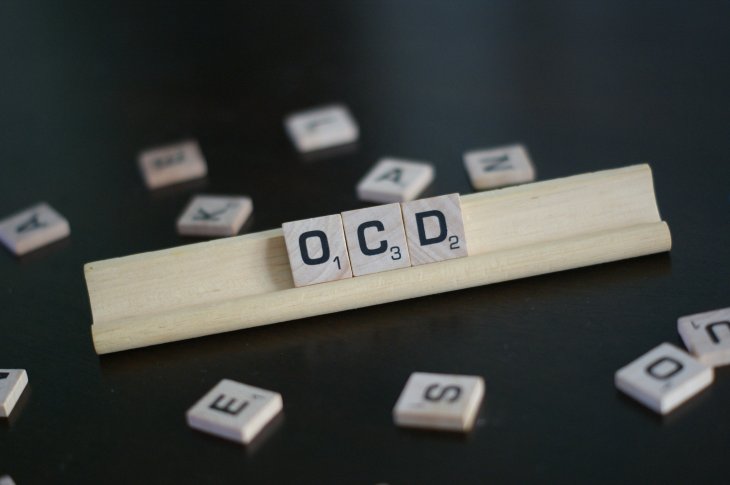“How do I know whether I have depression?” When we ask this question, we are inundated with quotes and experiences that we hear from others and on the news. The internet also provides us with a host of theories. All of this information is overwhelming, and we become even more confused.
 Being depressed is a common topic that is frequently discussed. It is a common topic on television shows, where they talk about how some traumatic experiences like a breakup or the death of loved one can cause depression. There are many well-known celebrities who have gone through depression and taken their lives. The famous and successful Robin Williams is a recent example.
Being depressed is a common topic that is frequently discussed. It is a common topic on television shows, where they talk about how some traumatic experiences like a breakup or the death of loved one can cause depression. There are many well-known celebrities who have gone through depression and taken their lives. The famous and successful Robin Williams is a recent example.
Why do you think they have depression? Are they depressed or just being sad? What are the causes? Are these situational or something going on inside the person? Irvine Christian Counseling can help explore these questions and provide clarity
Depression should be treated on a case-by-case basis. There is no “one size fits all” theory that can be applied in every case. Some depression can stem from a genetic disorder, while other types can be a result of some ongoing painful situation that the person is experiencing.
Sadness may look like depression but does not meet medical criteria. Other cases may seem to be a different type of disorder. Depression differs in its form and there are times when it is difficult to determine whether you are going through depression or some other health issue.
We are bombarded with information about depression online. Not everybody experiences the same symptoms. Each case should be treated differently. The National Institute of Mental Health (NIMH)2015 records show that depression occurs in more than 6 percent of adults. It is common among women and persons of 18 to 25 years old.
It can be experienced in any racial group although it differs in occurrences. According to the Anxiety and Depression Association of America (ADAA, 2016 records), the onset of this condition comes in the early thirties.
Depression differs in form. It can happen in persons of any socio-economic status, different age groups, and even in any educational level. It can also differ by season.
Depression is difficult to diagnose properly. To be sure whether you are having depression or other health-related condition, you need to consult with a medical doctor. If you are suspected of having depression, you will be referred to the appropriate mental health professionals for further medical assessment.
General Signs of Depression in Adults
Emotional Changes
 One of the first observable signs of depression are changes in your emotional makeup like mood swings. You may start to be more irritable or just angry for “no reason”, or experience restlessness or anxiety. There may be sudden or increased thoughts of death or feelings of hopelessness and worthlessness. You may cry more often, feel out of control, and generally overwhelmed.
One of the first observable signs of depression are changes in your emotional makeup like mood swings. You may start to be more irritable or just angry for “no reason”, or experience restlessness or anxiety. There may be sudden or increased thoughts of death or feelings of hopelessness and worthlessness. You may cry more often, feel out of control, and generally overwhelmed.
Watch your language also. You may start saying things like: “It is all my fault,” “My family will be better without me,” or “There is no future for me.”
You Lose Interest in Anything
Persons who are feeling depressed may experience increased or complete loss of interest in anything, including a decreased interest in the things they love to do. They may have no motivation to start a project that they were working on.
They have difficulty in focusing on necessary tasks and functions. Or, worse, they may withdraw from the crowd and from social events that they usually enjoy. They simply lose interest in anything and everything.
New tasks and undertakings may become sources of stress. This is usually experienced by those who have lost their interest in relationships. They may feel unworthy of their loved one’s time, or that they do not have the energy to nurture the relationship anymore. They may feel that their tasks and life are so enormous that they feel lost.
They may begin saying: “I cannot keep up with my work anymore,” “Honey, let us go out some other time. I just don’t feel like it tonight,” or “We always love to go swimming but not this time.”
You Lose or Gain Weight
Another clear sign of depression may be weight changes. This usually happens when people become stressed out and lose their appetites. This condition differs in each individual and their reaction to stress. Some tend to eat less, while others eat more. Loss or increase of appetite can cause weight changes. When persons are going through depression, they may have difficulty in maintaining a healthy weight.
These individuals may begin to say: “I cry and cry, and when I stop crying, I feel like eating. It feels good,” “I felt like eating these past few days,” or, “My weight changes based on how I feel.”
Changes in Sleep Patterns
 Changes in sleeping habits are another sign for persons who are going through depression. They may find it hard to sleep. They may either busy with just moving around the house or their mind feels blank.
Changes in sleeping habits are another sign for persons who are going through depression. They may find it hard to sleep. They may either busy with just moving around the house or their mind feels blank.
They also have difficulty in staying asleep, or experience interrupted and restless sleep patterns. For them, these experiences are overwhelming and annoying. This condition may lead to poor sleeping patterns like taking more naps and sleeping less during the night hours.
These poor sleeping patterns can result in lack of energy and motivation. Most who cannot sleep will feel tired. Others may experience hypersomnolence, a condition where a person sleeps excessively during the day or during night time.
The person experiencing this condition will start saying: “I just cannot sleep all night. I don’t know what’s waking me up but I’m up all night,” or say, “It is strange but I’ve been sleeping for more than ten hours and I wake still sleepy,” or “I just cannot sleep. I feel dull and I’m so tired, but I just can’t sleep.”
Changes in Physical Conditions
Physical change is another indication of having depression. These changes may include health conditions, how the person perceives himself, and how he processes information. Typically, people with depression may experience headaches, digestive problems, and stomach ache. They may also clench their jaws and wring their hands, creating pain.
Other have already some health problems and/or chronic pain concerns that lead to depression. This condition may also make some health problems more common, causing the depressed person to feel “inferior” compared to normal persons. They feel they are moving slowly, talking slowly, and thinking slowly. Some memory issues may also occur.
Persons with depression will begin saying: “I always have this stomach cramp that keeps me home. I can’t make myself go to work like this,” or saying “I just feel slow these past few days. I’m not my usual self,” or “I always feel like staying in. These headaches won’t go away.”
How Christian Counselors can Help You Identify the Symptoms of Depression
 We all know that depression is a common mental health problem nowadays. It seems that the frequency of this condition increases every year and those who experience depression do not receive a proper diagnosis. Those who suffer depression also do not seek treatment. Somehow, they feel that no one can help them.
We all know that depression is a common mental health problem nowadays. It seems that the frequency of this condition increases every year and those who experience depression do not receive a proper diagnosis. Those who suffer depression also do not seek treatment. Somehow, they feel that no one can help them.
You do not have to feel this way. If you have some of the symptoms of depression that are mentioned in this article, we encourage you to come out and seek treatment so that you will be able to know the underlying cause or causes.
The counselors at Irvine Christian Counseling are here to help you. We will accompany you on your journey to find the cause of your depression and how you can overcome it. We will walk with you through the healing process and help you regain self-confidence that you may have lost due to your depression.
Depression is truly scary when you do not have a support group or when you do not have professionals who understand this condition. Allow us to help you find yourself again and enjoy life to its fullest. Call us now.
References
Anxiety and Depression Association of America (2016). Facts and statistics. Retrieved from https://www.adaa.org/about-adaa/press-room/facts-statistics
National Institute of Mental Health (2015). Major depression among adults. Retrieved from https://www.nimh.nih.gov/health/statistics/prevalence/majordepression-among-adults.shtml
Photos
“The Ring”, Courtesy of Alex Iby, Unsplash.com; CC0 License; “Down”, Courtesy of Mitchell Hollander, Unsplash.com; CC0 License; “Introverted”, Courtesy of Hadis Safari, Unsplash.com; CC0 License; “Sunset”, Courtesy of Meireles Neto, Unsplash.com; CC0 License
-
Kate Motaung: Curator
Kate Motaung is the Senior Writer, Editor, and Content Manager for a multi-state company. She is the author of several books including Letters to Grief, 101 Prayers for Comfort in Difficult Times, and A Place to Land: A Story of Longing and Belonging...
DISCLAIMER: THIS ARTICLE DOES NOT PROVIDE MEDICAL ADVICE
Articles are intended for informational purposes only and do not constitute medical advice; the Content is not intended to be a substitute for professional medical advice, diagnosis, or treatment. All opinions expressed by authors and quoted sources are their own and do not necessarily reflect the opinions of the editors, publishers or editorial boards of Irvine Christian Counseling. This website does not recommend or endorse any specific tests, physicians, products, procedures, opinions, or other information that may be mentioned on the Site. Reliance on any information provided by this website is solely at your own risk.





